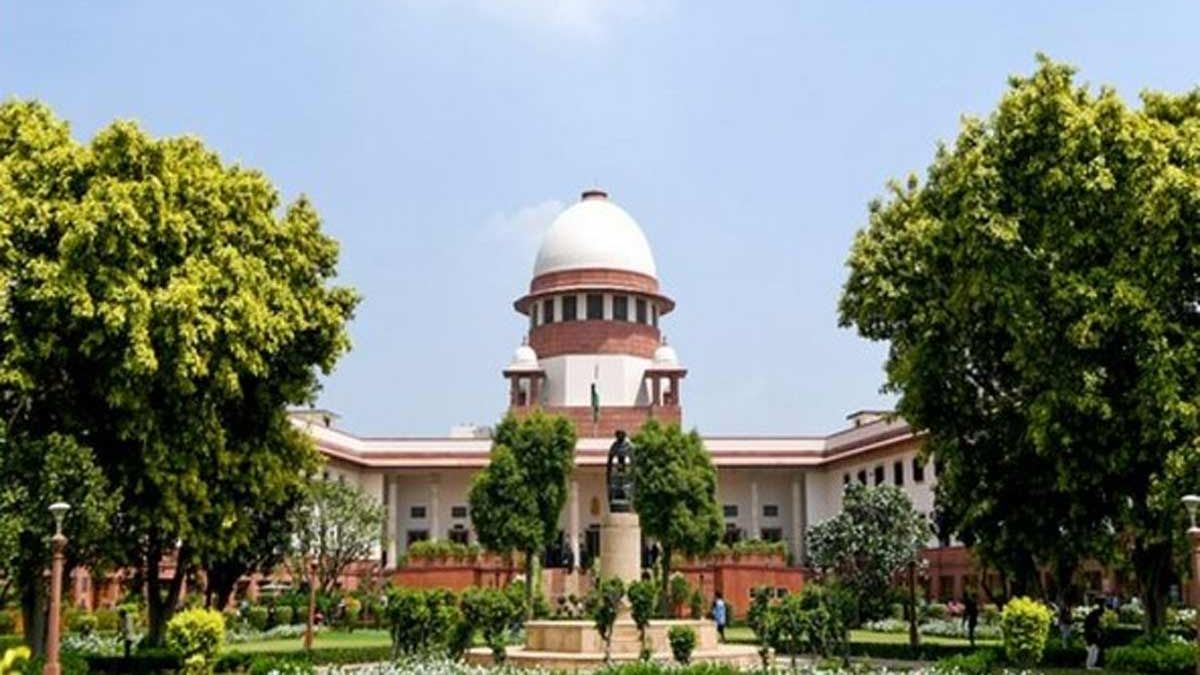Why did SC stay acquittal in 2006 Mumbai train blasts case while letting accused go free?

The Supreme Court has stayed the Bombay High Court's judgment acquitting 11 accused in the 2006 Mumbai train bombings (7/11 blasts). While the acquitted will remain free, the apex court ensured the High Court's controversial findings cannot be used as a legal precedent in other MCOCA cases, responding to Maharashtra's plea about future trials. The move aims to prevent the HC's critical observations on prosecution failures from impacting ongoing and future terror trials.
The Supreme Court on Thursday stayed the Bombay High Court judgment that acquitted all 11 accused in the 2006 Mumbai train bombings. However, the top court clarified it will not interfere with the release of those acquitted.
A bench of Justices M.M. Sundresh and N. Kotiswar Singh passed the order while hearing a plea filed by Maharashtra. Solicitor General Tushar Mehta, appearing for the state, submitted that the High Court verdict may negatively impact ongoing and future cases under the Maharashtra Control of Organised Crime Act (MCOCA).
While Mehta did not seek to re-incarcerate the released accused, he strongly urged the Court to stay the legal impact of the High Court's observations. “There are some findings which will affect all our MCOCA trials. The judgment can be stayed and the release be not hampered,” Mehta said.
The court, while issuing notices to all acquitted persons, ordered, "All respondents have already been released and there is no question of sending them back. However, as far as the legal implications are concerned, the impugned judgment shall not be treated as a precedent in any other case. Let there be a stay to that extent."
Nine of the eleven men acquitted by the High Court have already walked free. Two accused, Faisal Ataur Rahman Shaikh and Naveed Hussain, remain in custody due to other pending criminal cases. One of the original convicts, Kamal Ansari, died in 2021 while in prison.
The case stems from the coordinated serial bomb blasts that rocked Mumbai’s suburban Western Railway trains on July 11, 2006. The blasts killed 187 people and injured over 800, sending shockwaves across the country.
A MCOCA special court in 2015 had convicted twelve accused, sentencing five to death and seven to life imprisonment. The five sentenced to death - Shaikh, Hussain Khan, Asif Khan, Ehtesham Siddiqui, and now-deceased Kamal Ansari - were held to have directly planted the bombs.
However, in a dramatic turn, the Bombay High Court on July 21, overturned these convictions, acquitting all eleven living convicts while sharply criticising the conduct of the investigation and prosecution.
The bench of Justices Anil Kilor and Shyam Chandak at the High Court said the prosecution had utterly failed to prove the case beyond reasonable doubt. The verdict noted glaring lapses in the investigation, observing that while the public was made to believe the case had been solved, the true threat remains at large.
“Punishing the actual perpetrator of a crime is essential for public trust and safety. But creating a false appearance of resolution by prosecuting the wrong individuals deceives the public and undermines justice.”
The court found the prosecution's star witnesses—taxi drivers and train passengers—unreliable, especially as their identification came over three months after the incident. Moreover, it dismissed the recovery of bombs, guns, and maps as insufficient, pointing to the prosecution’s failure to even identify the type of bomb used.
With the Supreme Court's limited stay, the legal impact of the High Court's judgment has been curtailed for now. The stay ensures that the controversial findings of the Bombay High Court cannot be cited in other MCOCA-related cases or appeals, at least until the top court hears the matter in detail.
India